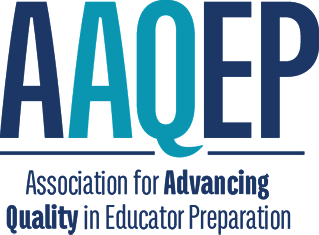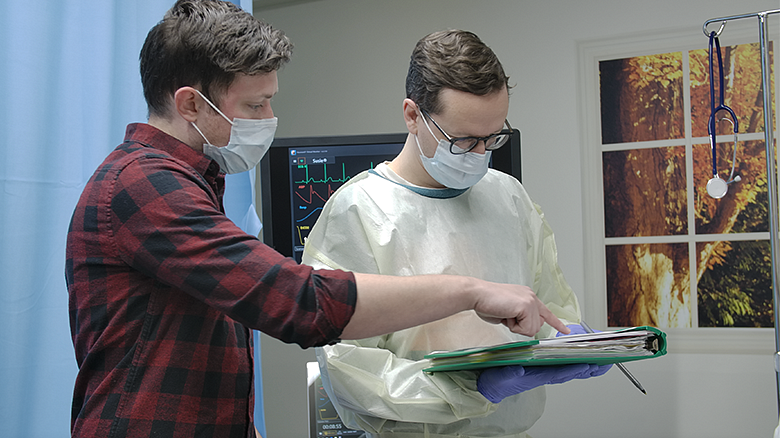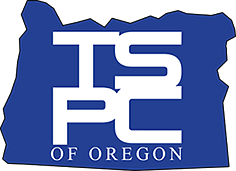
Nationally Accredited
Teacher Accreditation

The University of Oregon College of Education is a member in good standing of the Association for Advancing Quality in Educator Preparation (AAQEP), a national accrediting organization recognized by the Council for Higher Education Accreditation. The educator preparation programs have been awarded full accreditation by AAQEP through June 30, 2028. Full accreditation acknowledges that a program prepares effective educators who continue to grow as professionals and has demonstrated the commitment and capacity to maintain quality.
The Commission commends the program for its engagement in continuous improvement of teacher preparation programs and for its persistent investigation of opportunities for innovation. These priorities are enacted through a shared philosophy of collecting, analyzing, and acting on data from key assessments and input from stakeholders to serve all candidates and communities and to increase the diversity and cultural competence of the educator workforce.
This commendation recognizes excellence related to Aspect 3e, which calls for an effective quality assurance system driving continuous improvement and innovation, and Aspect 4b, which addresses diversification of the educator workforce.
The accredited initial teacher preparation programs are offered through our Curriculum and Teaching (UOTeach) master’s program, Special Education master’s program, and Sapsik’wałá Teacher Education Program.
Programs Accredited
Curriculum & Teaching (UOTeach)– Post-Baccalaureate Program with Master’s option (includes Sapsik’ʷałá Teacher Education Program)
- Embedded ESOL
- ELEMENTARY
- Elementary Education
- MID/HIGH
- Advanced Mathematics
- Biology
- Chemistry
- English Language Arts
- Foundational English Language Arts
- Foundational Mathematics
- Foundational Science
- Foundational Social Studies
- MID/HIGH (con't)
- Physics
- Social Studies
- World Language: Chinese
- World Language: French
- World Language: German
- World Language: Japanese
- World Language: Spanish
Special Education – Post-baccalaureate program with Master’s Option
- Embedded Reading Intervention
- Special Education: Generalist
- Special Education: Early Intervention and Early Childhood
Annual Reporting - 2025 Annual Report

School Psychology Accreditation
The School Psychology doctoral and master’s (specialist-level) programs are accredited by the National Association of School Psychologists (NASP). They received full accreditation status on February 1, 2021 from NASP’s Program Accreditation Board. Prior to this, the programs held NASP approval.
The School Psychology doctoral program has been continuously accredited by the Commission on Accreditation of the American Psychological Association (APA) since 1994.
Couples and Family Therapy Accreditation
The Couples and Family Therapy master’s program has been continuously accredited by the Commission on Accreditation for Marriage and Family Therapy Education (COAMFTE) of the American Association for Marriage and Family Therapy since 2003.


Counseling Psychology Accreditation
The Counseling Psychology doctoral program has been continuously accredited by the Commission on Accreditation of the American Psychological Association (APA) since 1955.
Communication Disorders and Sciences Accreditation
The Communication Disorders and Sciences master’s program has been continuously accredited by the Council on Academic Accreditation in Audiology and Speech-Language Pathology of the American Speech-Language-Hearing Association (ASHA) since 1991.

Regionally Accredited
The University of Oregon has been continuously accredited by the Northwest Commission on Colleges and Universities (NWCCU) since 1918. The NWCCU is an independent, non-profit membership organization recognized by the Department of Education as the regional authority in the seven-state Northwest region of Alaska, Idaho, Montana, Nevada, Oregon, Utah, and Washington. The Commission oversees accreditation for 162 institutions. Its decision-making body consists of up to twenty-six commissioners who represent the public and the diversity of higher education institutions within the Northwest region. Learn more.

Oregon Approved
Our initial teacher preparation programs, offered through our Sapsik’wałá Teacher Education Program, Curriculum and Teaching (UOTeach) master’s program, and Special Education master’s program as well as our school psychology programs, are approved by the Oregon Teacher Standards and Practices Commission (TSPC).
Professional Licensure Disclosures
In compliance with the U.S. Department of Education and the Oregon Higher Education Coordinating Commission (HECC) for participation in the National Council for State Authorization Reciprocity Agreement (NC-SARA), the University of Oregon (UO) provides information pertaining to professional licensure for applicable programs. UO academic programs are designed to prepare students to apply for licensure or certification in Oregon. Completion of a UO program may not meet educational requirements for licensure or certification in a state other than Oregon. Before beginning a program of study with the intent to be professionally licensed for employment within a U.S. state or territory other than Oregon, please contact coelicensure@uoregon.edu.
The UO makes every effort to ensure information about educational requirements for licensure or certification is current; however, state requirements may change. Separate from educational requirements, state licensure boards may require applicants to complete professional examinations, background checks, years of professional experience, residence requirements, jurisprudence exams, training, etc. It is strongly recommended that you contact the appropriate licensing entity in that state to seek information and guidance regarding licensure or certification requirements before beginning an academic program.
